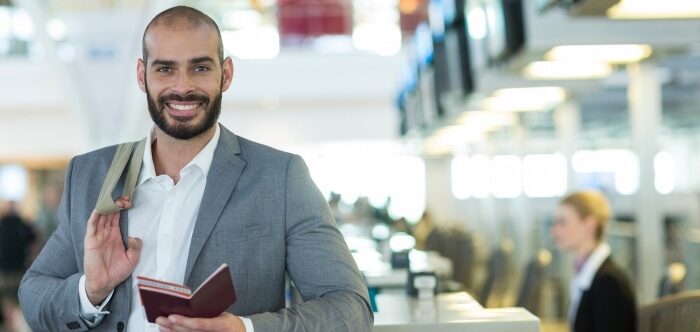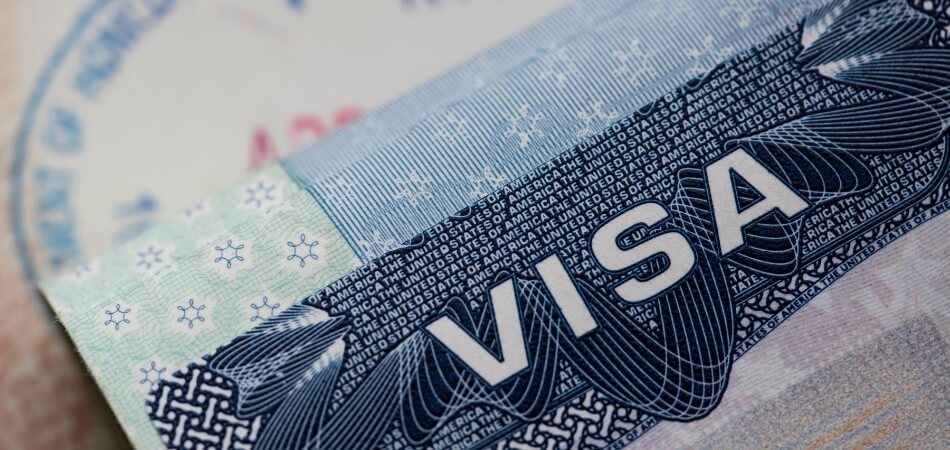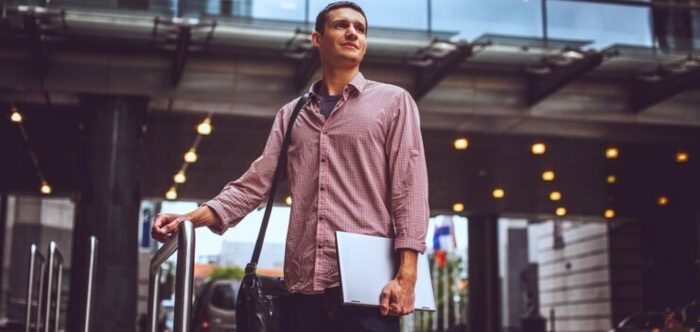Planning to attend a conference in the United States can be an exciting opportunity to gain knowledge, network, and engage in professional development. However, before you set out on your journey, one of the first questions that may cross your mind is, “What visa should I apply to attend conference in USA?
The B-1 visa category is specifically designed for business visitors seeking temporary access to the United States. This non-immigrant visa grants you the legal permission needed to participate in conferences, seminars, and other business-related activities within the country.
To ensure a seamless and successful conference experience in the USA, it is essential to understand the visa requirements, application process, and documentation needed for a B-1 visa. In this blog, we will explore deeper into the specifics of the B-1 visa, equipping you with the knowledge needed to navigate the intricacies of attending a conference in the United States.
Business Visitor Visa for Conference
When it comes to participating in conferences in the United States, understanding the Business Visitor Visa (B-1) is crucial. This non-immigrant visa allows individuals to engage in temporary business activities within the country.

The B-1 visa, often regarded as a business visitor visa, serves as a gateway for foreign nationals seeking entry to the United States for various professional reasons. It enables holders to participate in a wide array of business-related activities, including attending conferences, seminars, and meetings. Therefore, joining the upcoming International Conferences in USA requires a Business Visitor Visa (B-1 Visa).
However, note that this visa is specifically tailored for short-term visits and does not grant permission for employment or long-term stays. To qualify for a B-1 visa, applicants must demonstrate a genuine intent to engage in legitimate business activities during their stay, maintain strong ties to their home country, and provide supporting documentation outlining the purpose and duration of their visit.
While the B-1 visa serves as a valuable tool for international professionals attending conferences in the USA, applicants should meticulously adhere to the visa requirements and prepare thoroughly for their visa interview to ensure a successful application process.
What Visa Should I Apply to Attend Conference in USA?
When preparing to attend a conference in the United States, the first question that arises is, “What visa should I apply to attend conference in USA?” understanding the appropriate visa type is crucial for a seamless experience.
For attending an international conference held in the USA, the B-1 Business Visitor Visa is usually the most appropriate choice. This non-immigrant visa allows temporary visits for individuals engaging in business-related activities such as conferences, seminars, meetings, and negotiations. Emphasize that the primary purpose of your visit must be for business, not for employment within the U.S.
To obtain a B-1 visa, you must demonstrate your intent to engage in legitimate business activities during your stay, maintain strong ties to your home country, and furnish supporting documentation outlining the purpose and duration of your visit.
Types of Visa USA Provides for Attendees
Getting to know the U.S. visa system can be quite a challenge, especially if you’re unsure about which visa type to pursue. This guide will clarify the various types of USA visas to attend a conference. Attendees from other countries will need visa to attend conference in USA and be eligible to stay in the meantime. understanding the types of visas provided for attendees will help you select the one that aligns best with your intentions, whether you’re looking to study, work, attend conferences, or reunite with family.
B-1/B-2 Visitor Visa
These visas cover short-term visits for both business (B-1) and tourism (B-2). Business visitors can attend meetings, negotiate contracts, or explore potential business opportunities, while tourists can enjoy leisure travel within the country.
F-1 Student Visa
If you intend to pursue academic programs at U.S. institutions, such as universities or language schools, the F-1 visa is appropriate. It allows you to study and, in some cases, work on-campus during your program.
J-1 Exchange Visitor Visa
The J-1 visa encompasses a wide range of exchange programs, including students, researchers, scholars, and professionals. It promotes educational and cultural exchanges between the U.S. and other countries.
H-1B Specialty Occupation Visa
Highly skilled professionals with specialized knowledge, especially in fields like technology and medicine, can seek employment in the U.S. through the H-1B visa. It requires sponsorship from a U.S. employer.
L-1 Intracompany Transfer Visa
Multinational companies can transfer their employees to U.S. offices or affiliates using the L-1 visa. It comes in two categories: L-1A for managers/executives and L-1B for employees with specialized knowledge.
O-1 Extraordinary Ability Visa
The O-1 visa is for individuals who excel in their fields, whether they’re scientists, artists, athletes, or outstanding professionals in business and education. You need to show proof of your exceptional abilities and how they benefit the United States.
K-1 Fiancé(e) Visa
The K-1 visa is for fiancé(e)s of U.S. citizens who plan to marry in the U.S. After marriage, you can apply for a green card to become a permanent resident. The key is to marry within 90 days of arrival.
U-Visa
The U-Visa helps victims of certain crimes who’ve suffered significant physical or mental harm and are willing to help law enforcement. It provides temporary legal status and can eventually lead to permanent residency.
E-1/E-2 Treaty Trader and Investor Visas
The E-1 Treaty Trader and E-2 Treaty Investor visas are for people from countries with trade and investment treaties with the U.S. The E-1 is for substantial trade, and the E-2 is for significant investments in U.S. businesses, promoting international trade and investment.
This comprehensive overview of U.S. visa types will help you identify the most suitable visa category for your specific needs, whether it’s for education, work, family reunification, or other purposes.
Tips for a Successful Conference Trip
Taking part in a conference is an exciting opportunity to learn, connect, and grow professionally. To ensure a rewarding experience, it’s essential to go beyond the basics.
Here are some valuable tips for a successful conference trip:
Early Planning Pays Off
Start planning well ahead of the conference dates. Register early to secure your spot and take advantage of discounts. Consider booking accommodations close to the venue for convenience, as nearby lodgings can save you time and make your schedule more flexible.
Master the Schedule
Carefully review the conference agenda in advance. Highlight the sessions, workshops, or speakers you’re most interested in. Prioritize these events in your schedule to ensure you don’t miss out on valuable opportunities.
Network Actively
Networking is a cornerstone of conferences. Attend social events, engage in discussions, and exchange contact information with fellow attendees. These connections can lead to collaborations, career opportunities, and valuable insights.
Be Prepared for Q&A
If you’re presenting at the conference, thoroughly rehearse your presentation and anticipate potential questions from the audience. Responding confidently and concisely enhances your credibility and leaves a lasting impression.
Stay Organized
Keep all essential documents, such as your passport, conference materials, and receipts, organized in a secure place. Consider creating digital copies as backups, and use mobile apps for easy access.
Explore the Locale
While the conference is your main focus, take some time to explore the host city or region. Discover local culture, cuisine, and attractions. This not only enriches your experience but also provides well-deserved relaxation.
By incorporating these tips into your conference trip preparations, you can maximize the benefits of your attendance and return home with new knowledge, valuable contacts, and a sense of accomplishment.
How To Apply for a Visa to Attend a Conference in the USA?
The visa application process is essential to ensure your conference attendance in the USA proceeds smoothly. Attendees from visa-eligible countries should follow US visa regulations while applying. However, attendees from the Visa Waiver Program (VWP) countries need not apply for a conference visa. Few wonder Canada citizens need visa for conference USA, but they are allowed with their Canadian passports, and no need to apply for a conference visa.
Here’s a comprehensive step-by-step guide, including key tips and insights to help you along the way:
- Determine the correct visa type: Identify whether a B-1 Business Visitor Visa is suitable for your conference attendance purpose.
- Complete the DS-160 form: Fill out the online DS-160 form accurately and truthfully, and obtain the confirmation page.
- Pay the visa fee: Pay the non-refundable visa application fee as per the instructions provided by the U.S. embassy or consulate.
- Schedule a visa interview: Visit the U.S. embassy or consulate’s website to schedule a visa interview appointment.
- Gather necessary documents: Collect required documents such as a valid passport, DS-160 confirmation, visa fee receipt, and a recent passport-sized photograph.
- Attend the visa interview: Attend the scheduled visa interview with all your documents, including the DS-160 confirmation, and be prepared to answer questions about your conference participation.
- Pay the visa issuance fee (if applicable): If your visa is approved, you may need to pay an additional visa issuance fee based on reciprocity with your home country.
- Wait for visa processing: The processing time varies, so monitor the status of your visa application using the receipt number provided.
- Visa approval or denial: You will receive either a visa approval or denial. If approved, follow instructions for visa collection and entry to the USA.
By following these steps diligently, you can navigate the visa application process effectively and increase your chances of obtaining a visa to attend a conference in the USA.
Frequently Asked Questions
Attendees often fall short of knowledge of what visa should they apply for to attend a conference in the US. here are some commonly asked inquiries and their practical answers for a wider perspective of attendees on their conference visa.
Can I Use a B-2 (Tourist) Visa to Attend a Conference in the USA?
Ans. A B-2 visa is primarily for tourism, but it can be used if the primary purpose of your visit is tourism and attending a conference is incidental. However, for business conferences, a B-1 visa is more appropriate.
Do I Need a Visa if I Am From a Visa Waiver Program (VWP) Country?
Ans. If you are from a VWP country, you can travel to the USA without a visa for up to 90 days for business purposes, including attending conferences. You must, however, apply for an ESTA (Electronic System for Travel Authorization) approval before your trip.
What Documents Do I Need to Apply for a B-1 Visa to Attend a Conference?
Ans. You typically need a valid passport, a completed DS-160 form, a visa fee receipt, a letter of invitation from the conference organizers, evidence of ties to your home country, and proof of financial means to cover your expenses.
How Long Does It Take to Get a B-1 Visa for a Conference in the USA?
Ans. Processing times can vary, but it’s generally recommended to apply at least 3-4 weeks before your intended travel date. Check the current wait times for visa appointments at the U.S. embassy or consulate in your country.
What Should I Do if My B-1 Visa Application Is Denied?
Ans. If your visa application is denied, review the reason for the denial, address the concerns raised, and consider reapplying. You may need to provide additional documentation or clarification about your ties to your home country.
Final Thoughts
Appear at a conference in the USA presents a multitude of opportunities for growth, learning, and professional networking. To embark on this enriching journey, understanding the pivotal question, “What visa should I apply to attend conference in USA?” is essential. The answer lies in the B-1 Business Visitor Visa, tailored for individuals seeking temporary access to engage in conferences, meetings, and business-related activities within the country.
Digging deeper into the specifics of the B-1 visa is crucial, ensuring a seamless and productive conference experience. Furthermore, this guide has shed light on various types of visas provided by the USA, catering to diverse needs, from academic pursuits to business ventures and family reunions.
As you plan your conference trip, remember that accurate visa application preparation and adherence to conference tips can make the entire experience more fruitful. Armed with the right visa and a well-organized agenda, you can make the most of your conference attendance and return home with invaluable knowledge and connections.







